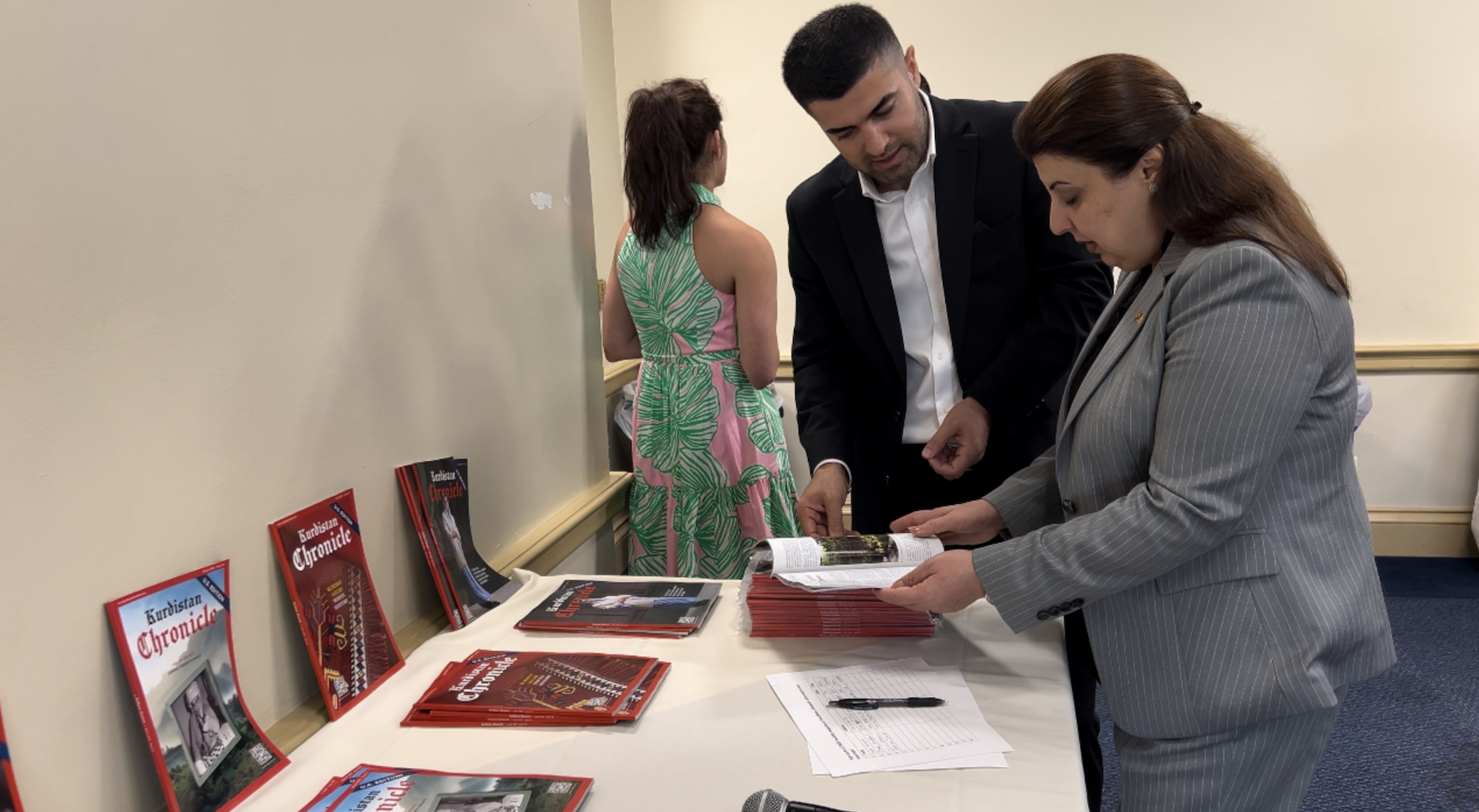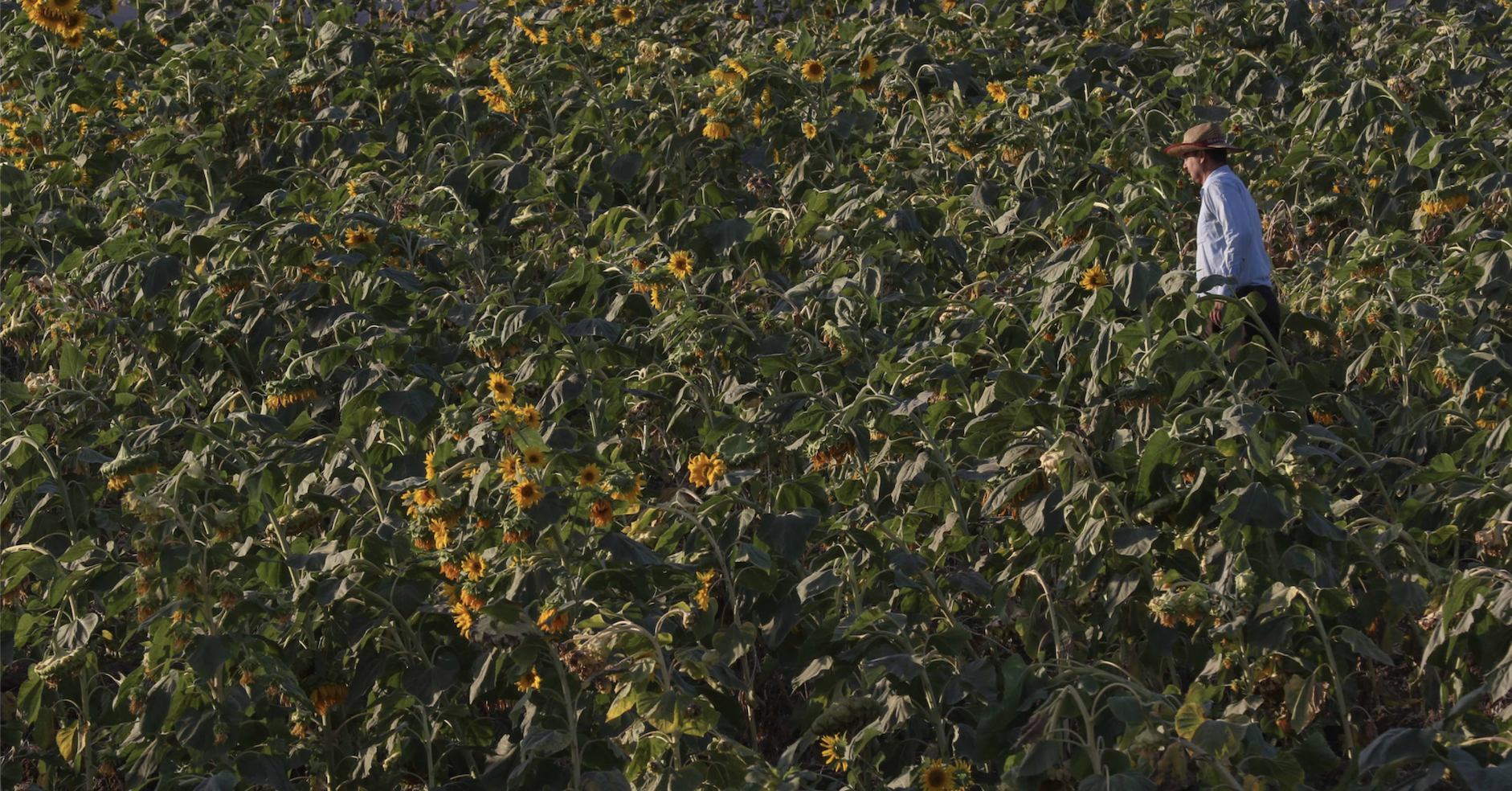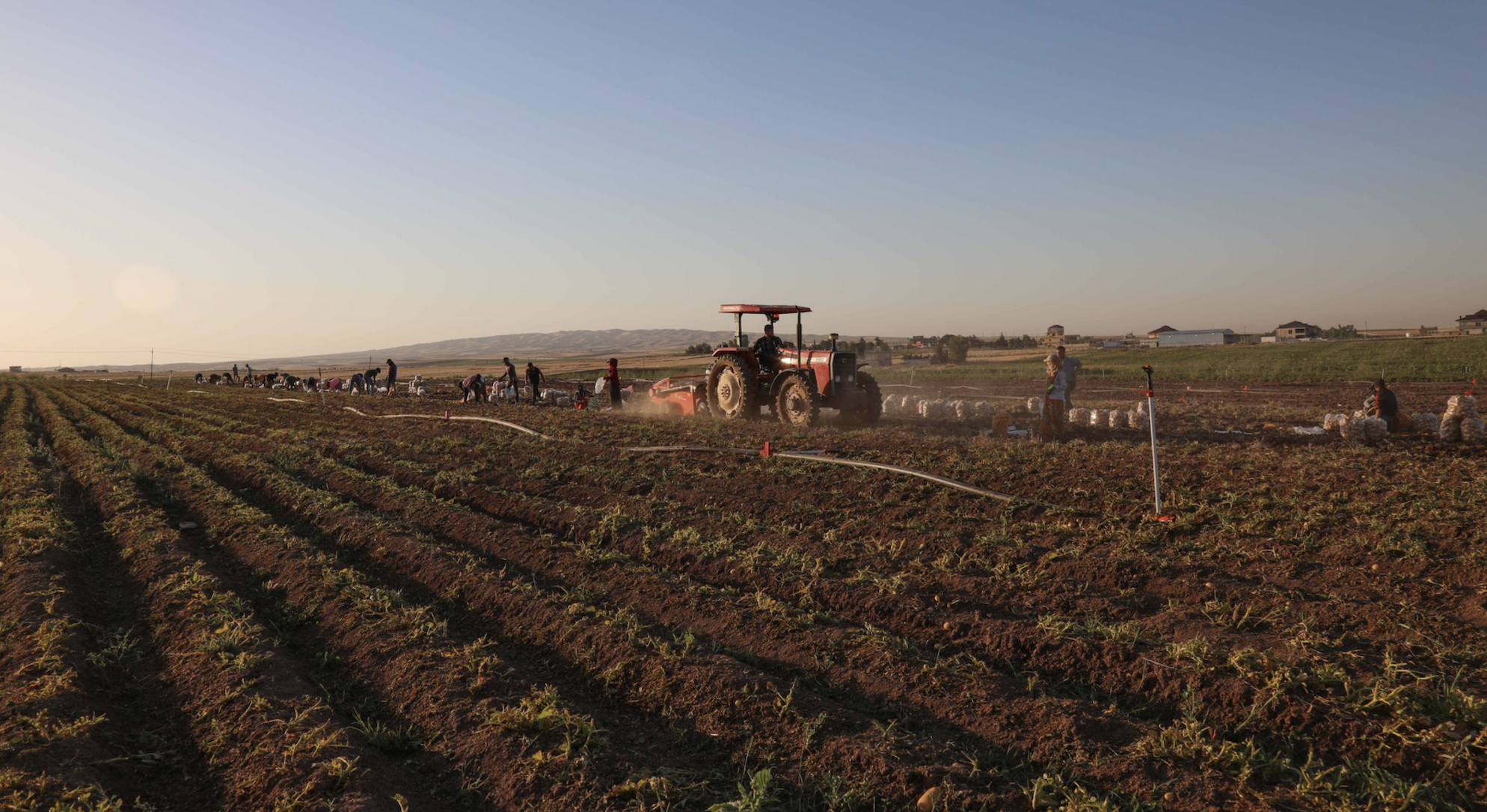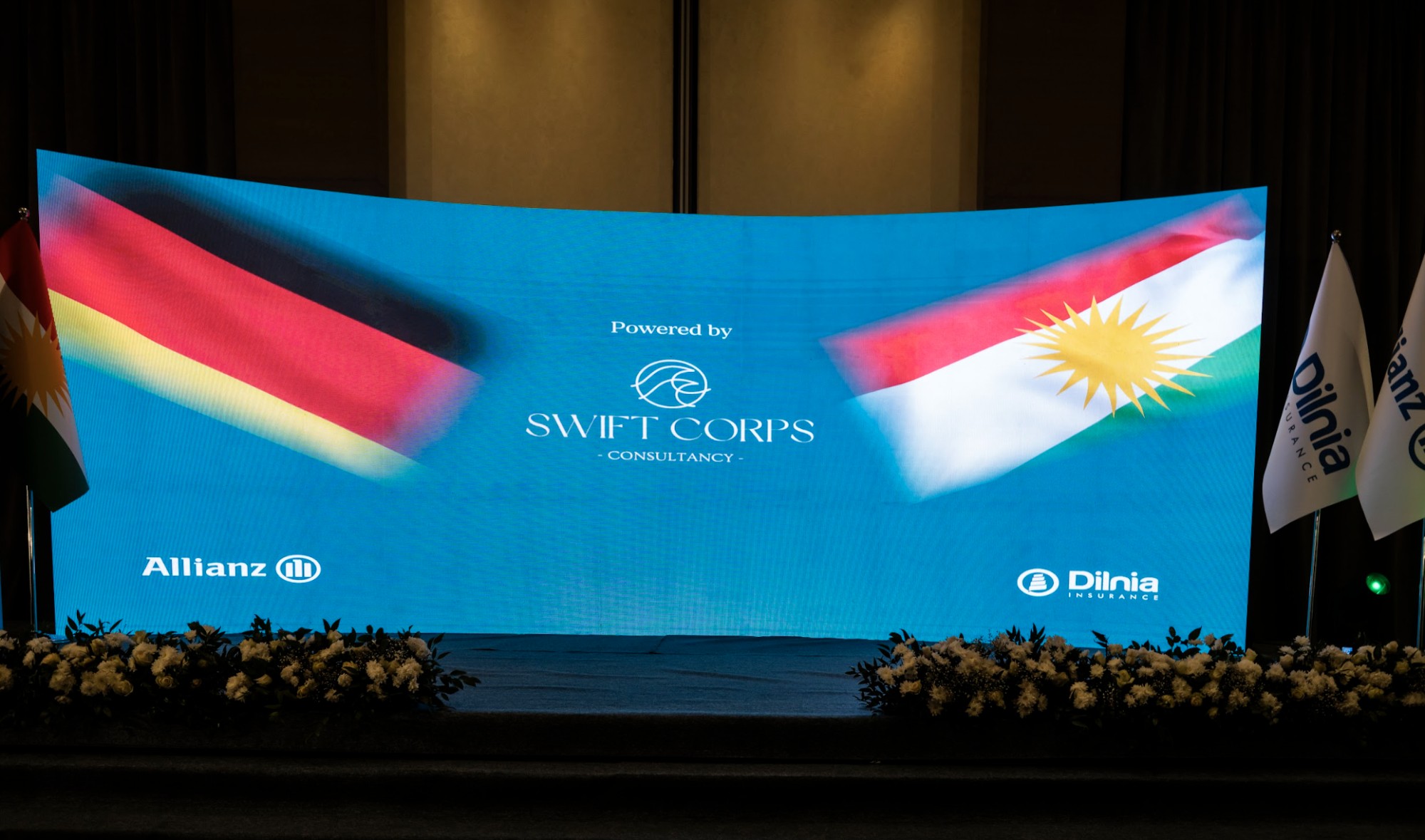The Ninth Cabinet of the Kurdistan Regional Government (KRG) has steadfastly prioritized the agricultural sector. After being sworn in in 2019, KRG Prime Minster Masrour Barzani delivered a speech in front of the Kurdistan Region Parliament, where he underlined the importance of the sector, stating that “the agricultural sector will be one of our main priorities, as we will introduce new methods, advanced machinery, and expanded knowledge of scientific methods to improve quality across the sector.”
Prime Minister Barzani also highlighted the importance of harnessing the region’s water resources to their full potential. “We will work to exploit our water resources by building dams and sources of sustainable energy,” he said. “This will help preserve our water for agriculture, prevent desertification, and increase green spaces.”
I had the opportunity to meet with KRG Minister of Agriculture and Water Resources Begard Talabani, one of three women who are serving in Prime Minister Barzani’s cabinet, while in Washington, D.C. and discuss the accomplishments of the Ninth Cabinet in these areas and more.
“The agricultural sector is indeed one of the top priorities of the Ninth Cabinet, and we have been able to develop a strategy to bolster both the agriculture and water sectors in the Kurdistan Region, particularly when it concerns climate change,” Talabani said.

Mitigating drought
The specter of drought hangs over the Kurdistan Region, and Talabani acknowledged that the government had taken serious measures to prepare for this possibility. “Climate change has had a damaging impact on Iraq,” she said. “In order to protect the Kurdistan Region from drought, the government has plans to build several dams in each city and town throughout the region.”
There are currently 23 dams and 118 ponds in the Kurdistan Region, with the Ninth Cabinet having built six of the dams and eight of the ponds. Moreover, 40 ponds are currently under construction. In 2024 alone, these dams were able to reclaim more than three billion cubic meters of water and have greatly benefited society in other ways by generating electricity, providing irrigation, and supporting tourism, as well as many other purposes.
The KRG, in collaboration with UNICEF, has also taken comprehensive measures to conserve water and prevent the effects of drought, including the launch of the ‘cooperative ponds’ program, which provides farmers with financial and technical support to build ponds for preserving rainwater. The initiative, which aims to reduce water shortages and mitigate the impact of drought, is considered a matter of national urgency. The ponds will help prevent floods, as well as produce a significant source of water for agriculture, irrigation, and tourism.

Boosting agricultural exports
In addition to defensive measures against climate challenges, Talabani emphasized the efforts of the Ministry of Agriculture and Water Resources in collaboration with the Kurdistan Agriculture Export Initiative (KAEI) under the Prime Minister’s Office to enhance the marketing of farmers products abroad. She pointed out that a modern export mechanism is now in place to ensure the quality of Kurdish products reaching foreign markets, part of an effort to safeguard the reputation of Kurdish brands in international markets.
The KAEI, launched in 2022, is central to the KRG’s progressive reform agenda to diversify the economy and boost the agricultural sector of the Kurdistan Region. Its efforts led to the first ever export of a product from the Kurdistan Region, namely pomegranates, to Gulf and European markets. The KRG also exported apples, grapes, and honey to foreign markets from 2023.
At the time, Prime Minister Barzani remarked that the export of pomegranates marked only the beginning of the export of various other products, acknowledging the significance of oil and gas revenues but cautioning that these resources are finite. “What will we do when these revenues run out?” he asked, advocating for early investment in the agricultural sector as a vital income stream for the country.
“After pomegranates, the region has exported rice, tahini, apples, tomatoes, potatoes, and sumac (flowering plants that belong to the genus Rhus) to Gulf and European countries, and is now exporting eggs and chickens to the UAE,” Talabani elaborated.
In Talabani’s view, the Ninth Cabinet is the first in the KRG’s history to export such significant volumes of agricultural produce abroad.

Role of women
On July 23, 2024, KRG representatives in Washington, D.C. organized a congressional briefing entitled “Empowering Change: Women Shaping Peace and Security in the Kurdistan Region” at the U.S. Congress. There, Talabani was a guest speaker and touched on the role of women in the Kurdistan Region and in government, drawing on her experience as a member of the Kurdistan Parliament during the Fourth Term (2013-2017) and as the first woman in history to serve as secretary of the Kurdistan Parliament.
In her speech at the U.S. Congress, Talabani highlighted the role of women in government, mentioning that three women are currently serving in the Ninth Cabinet for the first time in the KRG’s history. She also pointed out that the judicial branch is currently made up of 270 judges, of whom 69 are women. Similarly, of the 204 attorneys general, 59 are also women.
Meanwhile, the Kurdistan Region has 369 non-governmental organizations that focus mainly on women’s issues.
In her role leading the Ministry of Agriculture and Water Resources, Talabani is committed to helping women business owners overcome the challenges that women still face. In this regard, she underscored the importance of implementing a law that grants women the right to land ownership, a right previously only granted to men.
Goran Shakhawan is a Kurdish-American journalist and author based in the United States. He covered news for several Kurdish news outlets and was a former senior correspondent for Kurdistan24 in Erbil and Washington D.C. He has published several books in Kurdish.

